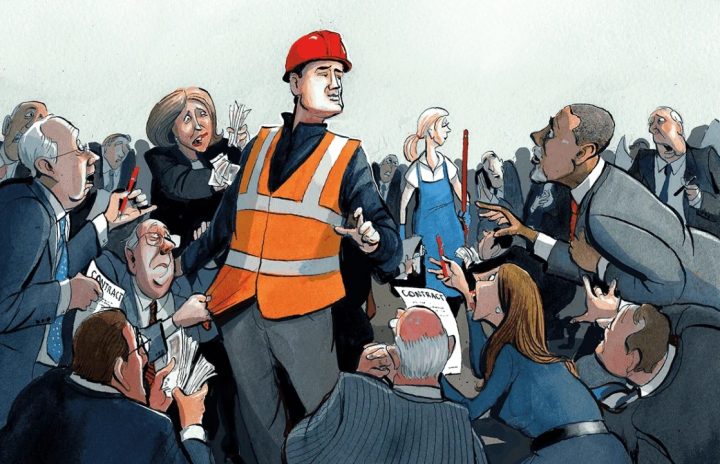So, Britain has finally awarded itself the real-terms pay rise that the unions would say workers ‘deserve’. This morning’s inflation figures show that the Consumer Prices Index (CPI) is up 6.8 per cent in the year to July. Yesterday’s earnings figures showed that wages grew by 7.8 per cent. So, in other words, the UK workforce as a whole has received a real-term pay rise equivalent to a whole percentage point. The period of falling real incomes is finally over – at least for the majority of earners. Some, of course, will still be seeing falling real wages.
In the absence of productivity growth, any wage rises will turn out to be illusory
But is it really ‘deserved’? A third – and much less commented upon – set of figures was released by the Office of National Statistics (ONS) this week. They showed that productivity per hour worked is up only 0.1 per cent over the past year. In fact, productivity has been pretty static ever since the pandemic. This is the sort of thing that is going to worry the Bank of England’s Monetary Policy Committee (MPC). A society cannot grow richer unless it can improve output. In the long term, in the absence of productivity growth, any wage rises will turn out to be illusory – they will be cancelled out by inflation, which is nature’s way of ensuring that we cannot get something for nothing.
That is not the only worrying sign. When inflation was on its way up, the MPC, along with many others, comforted itself that ‘core inflation’ – that is when you strip out food and energy prices on the grounds they are supposed to be more volatile – was not rising at the same rate. You can wonder what the point is of an inflation rate which strips out two of the biggest contributions to the cost of living – indeed, you can fiddle around all day to invent new inflation indices which make the economic picture look better: how about creating an IPEEGU (the index of prices excluding everything that is going up)?
But the point is that the ‘core’ inflation index isn’t coming down. At 6.9 per cent it stands exactly where it did in June, and is now higher than CPI. In other words, the conceit that the inflationary surge of the past year is just some one-off adjustment to a post-pandemic supply crunch is bunk. Inflation is now embedded across the economy, and worse, it is feeding into wage rises, bringing us to what looks suspiciously like the beginning of a wages-prices spiral. The Bank of England’s last Monetary Policy Report was predicated on the assumption that annual wage rises will be down to 6 per cent by the end of the year. That is beginning to look like a forlorn hope. Don’t expect interest rates to be coming down any time soon.







Comments